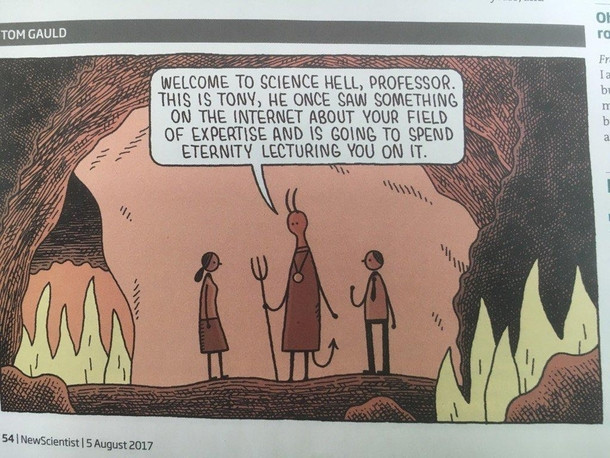Question: can you make sense of what I am saying, or do I confuse your understanding of what I am saying?
Speaking for myself, the message I take often away from many of your posts is simply that you're most likely confusing or conflating different concepts, or inappropriately conflating different meanings of the same word. You don't seem to realise that there's a difference between colloquial and scientific meanings of certain words.
I don't mind being corrected on the science, but as long as I can find the word in credentialed dictionaries and apply it in proper context, even as a colloquialism, I see no reason to hunt for a formal scientific term in my narratives.
How can you discuss "the science" without using correct scientific language?
I mean, at a very superficial level, it is possible. Probably scientists will be able to guess at what you might mean when you use certain words. But don't you think it would be better for all involved if you made an effort to actually use words in their correct scientific senses, when you want to talk about science?
Do you see any value in actually learning how scientists use the words in the scientific papers, articles and explanations that you read from them? If not, why not?
This sort of thing doesn't just apply to science, by the way. If a musician tells me that the variations in the dynamics of a piece of music are interesting to her, it's no use in my talking to her about the varying speed of the piece of music, or how "lively" it sounds to me. She isn't talking about those things. Worse, it's no use in saying to
her that when
I say the piece is "dynamic" I mean that it sounds "bouncey" to me, and
it's just fine for me to use the word "dynamic" to mean "bouncey" whenever I'm talking to a musician about the intricacies of a musical composition. And it would be both presumptuous and rude for me to tell
her that my understanding of the term "dynamics" is "as correct" and useful as hers is, in the context of her specialist knowledge.
I do not pretend to write formal scientific papers, just my understanding of the fundamentals.
It would be wrong of me to claim that I "understand the fundamentals" of music if I insist that "dynamics" means "bouncey".
Note: the problem here is
not that my comment that the music sounds "bouncey" is
wrong. It's just that the "bounciness" actually has nothing to do with "dynamics", in the sense that that term is defined by knowledgeable musicians.

